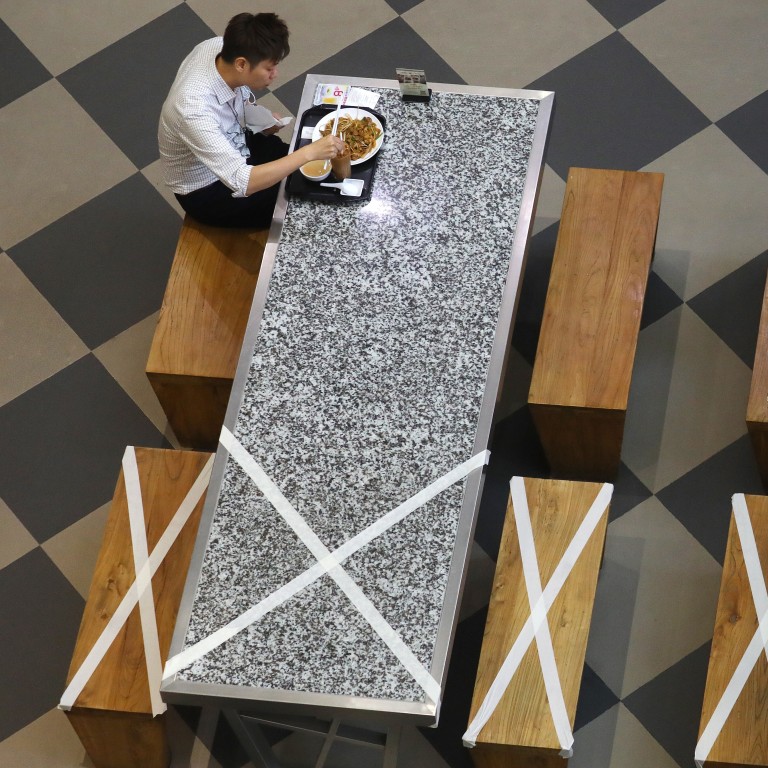
No measure too small in struggle to turn back tide of infection
- As the number of Covid-19 cases grows and Hong Kong leader warns of further peril in the winter, now is the time for a comprehensive, proactive anti-pandemic strategy
The rapidly evolving Covid-19 situation has prompted a flurry of measures from the government to tighten the city’s defences against contagion. They include the mandatory wearing of masks in indoor public places, such as shopping centres, as well as on public transport.
Even with much cooler weather still months away, Chief Executive Carrie Lam Cheng Yuet-ngor has warned that a new wave of infection could lie ahead in the winter. If that is the case, the city needs a comprehensive, proactive anti-pandemic strategy now.
The latest daily caseloads provide ample justification. After a record 108 new cases of infection were reported on Sunday, another 73 emerged yesterday. More triple-digit totals cannot be ruled out. Hong Kong is facing a crisis, and Lam has conceded the situation is severe.
She and other officials attributed the increased number to mass testing. But Dr Leung Chi-chiu, chairman of the Hong Kong Medical Association, says the spike in cases, especially those of an unknown source, shows prevention measures have been too lax. This risks putting further strain on our overworked health care system.
Hong Kong steps up Covid-19 fight with ‘no signs situation is under control’
The government’s stepped-up response includes ordering civil servants to work from home from yesterday and extending restaurant restrictions, such as the 6pm-5am dining-in ban, until July 28. The decision about working from home is overdue and should be followed by the private sector.
A local group of politicians and former officials has also suggested asking Beijing to send experts to help with testing.
Officials need to show a sense of urgency about applying the new law on masks in indoor public places, and reconsider the decision not to include outdoor public spaces, even if those who exercise find masks inconvenient.
No measure is too small to consider if we want to turn back the tide of infection. It requires the government to act decisively and the community to act responsibly. Second and third waves may be harder to manage when authorities are trying to force another round of behavioural change.
This raises the question whether we should limit numbers in malls or supermarkets to ensure proper social distancing. Now some people are calling for a curfew. That might seem extreme, but it is a measure of widespread concern and strengthens the case for other complementary and integrated measures as part of a proactive strategy to rein in the contagion.

